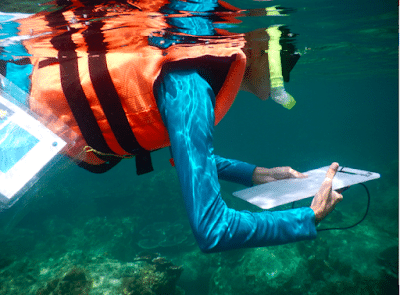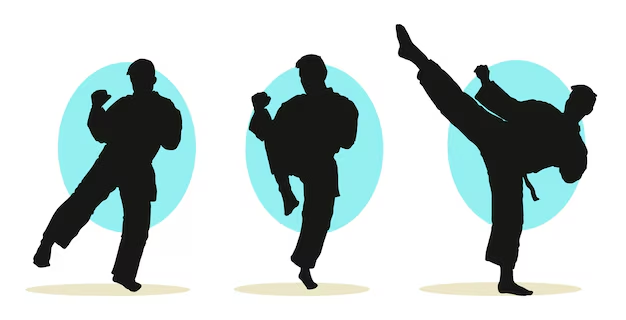
|
| Data collection never looked to be so much fun! |
Last week some 70 grade 12 Biology and Environmental Systems and Societies students went on a field trip to Tioman, to study mangroves and coral reefs, and to undertake some IB coursework. The feedback from students and teachers has been incredibly positive, and two things emerged that are worth reporting on. Firstly, the students were highly focussed, independent and motivated. Once they were told the plan for the day, they just got on with it; and even after an 8.00am – 6.00pm rainforest hike, on return to camp they were keen to use the evenings to best effect, and to write up and analyse the day’s events. Secondly, teachers noticed just how kind the students were to each other; at difficult part of the hikes, for example, the quicker students would often hang back, and wait to the end of the group, to be sure no one was left behind. A few student quotes – “great experience though tiring, an amazing experience to see real life examples and application of theory”, “sandy, wet, informative – and a trip to remember” and “exhausting yet rewarding” show how the motivation is intrinsically linked to the challenge of the trip.
I have also enjoyed dropping into some terrific lessons recently; from a cubist approach to a self-portrait, to calculating Simpson’s diversity index, to using laptops with microscopes in grade 11, to analysing Solzhenitsyn’s One Day in the Life of Ivan Denisovic, to a debate on how we can know when to follow, or not to follow authorities, to deciphering Spanish song lyrics. In every lesson I am struck not just by the hunger for learning, but by the fun, vibrancy and sheer ebullience of our students in the face of what is, by any stretch of the imagination, a challenging schedule. Of course as activities get into full swing, time will become a little more constrained, but we know from experience that the activities are another source of pride and inspiration for our students.
It was with all these ideas in mind that we made a decision this week on an important matter – that of recognising student achievement. We will continue to recognise excellence by immediate, personal feedback to students in the context of their learning; I will continue to write congratulatory notes to those who make a marked improvement or who maintain a strong performance, and students will continue to win external awards (e.g. those awarded by MUN bodies, SEASAC, IB, (I)GCSE bodies and so on). We will not, however, institute a formal process of internal East High School Awards, where we single out a student for the Mathematics Prize, for example. The main drivers behind this decision were (a) the strong evidence that having awards does not have an overall positive effect on learning (probably because by inevitably creating more losers than winners, it de-motivates most students) (b) the fact that our students do not need these awards to find their own motivation, as evidenced by the anecdotes above, and (c) our general approach that in most areas students gain more from cooperation than from competition. The formal statement of our decision can be found here and is the result of a long consultative process. The document contains some link to some of the research and arguments we have considered, and we thank those of you who responded to questions, attended events and made your views known.


